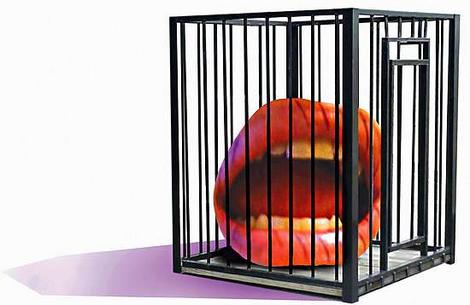What is it about Washington State and their LGBT-related free speech battles? Today, there’s news that a federal judge has granted a temporary restraining order preventing the release of names of people who signed a petition to get an anti-domestic partnership bill on the ballot.
 According to press reports, the judge said Protect Marriage Washington was likely to succeed under the First Amendment in claiming that the release of names of people who signed the petitions for Referendum 71 would be harmed if their names went public, even though state law requires the release of names.
According to press reports, the judge said Protect Marriage Washington was likely to succeed under the First Amendment in claiming that the release of names of people who signed the petitions for Referendum 71 would be harmed if their names went public, even though state law requires the release of names.
While I’m suspicious of this argument, a similar argument was made under Washington’s expansive public records law two months ago . . . by LGBT employees of a public utility. In that case, an employee challenged an information release request for the names of public employees who participate in an LGBT employee group (full disclosure: I am friends with someone whose name is on that list).
At the core of these battles is whether people face possible harassment if their names (and addresses) are made public. The information has always been public, of course, but those requesting the information seek to take the information and put it on a separate website to make the date more accessible. So instead of needing to wander down to the elections commission to get names, you can now do it on your computer while sipping a venti latte at Starbucks.
The conflict was underscored in California when a group of people founded a website called Eightmaps that went one step further and mapped out the addresses of those who gave money–as opposed to signed a petition–in support of Proposition 8. Some donors alleged they received death threats and were subject to other acts of intimidation and blamed the Eightmaps information. These allegations have fueled a backlash–and potent political argument–against disclosure of names for fear of intimidation by pro-LGBT activists.
These free speech conflicts are an interesting opportunity for more expansive journalism. Has the LGBT community–which historically has been concerned about public disclosure of names for fear of discrimination and violence–forgotten its history when it now creates mechanisms for tracking the names and addresses of people who gave money or signed a petition in a battle over LGBT rights? What would be the reaction if anti-LGBT groups put the names of donors or petition signers on websites mashed with maps sent emails to the employers of people on those lists? And is the end-result of this kind of technology really what was intended when public-disclosure laws were created?
